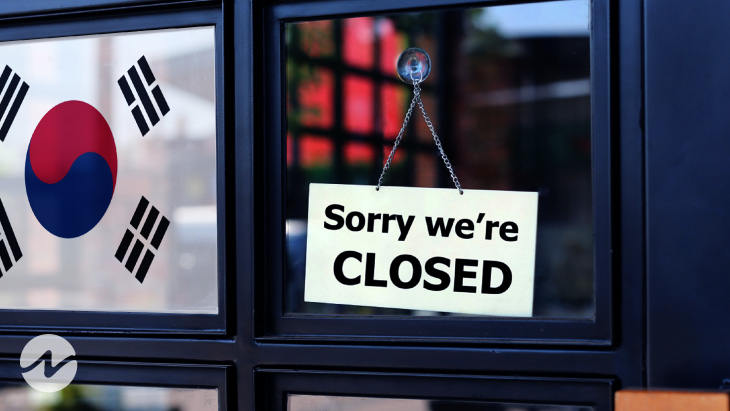South Korea is one of the major countries where the majority of people are involved in the cryptocurrency industry. Many countries around the world are working hard to regulate and reform the crypto space. South Korea announced its regulations on 578 cryptocurrencies last month. Overall, many country regulators are conducting extensive investigations into cryptocurrency exchanges in order to identify any fraudulent or illegal activity.
Recently, the authorities took a step forward with their regulatory investigation of unregistered crypto exchanges. Now, the FCA has put a shutdown signal for 11 local exchanges in South Korea.
Inspection on Exchanges
The South Korean Financial Services Commission (FSC) inspected and closed 11 local exchanges suspected of engaging in illegal activities. Furthermore, the names of the exchanges suspected of fraudulent activity have not been revealed in the reports. However, these closed exchanges will not be permitted to operate in the future by the FSC.
Significantly, this suspension has not affected the country’s leading exchanges. Both Upbit and Bithumb have no impact on the investigation as they allow users to register accounts with real-name. Since 2018, such registration has been required in South Korea for anti-fraudulent and money laundering purposes.
On July 2, Bithumb announced its implementation of a new policy that banned its employees from investing and trading using Bithumb accounts. This new policy was for internal regulations as financial regulators were in a state to impose regulations on crypto exchanges.
A Slew of Challenges for Crypto Industry
South Korea has a strict regulatory structure for the crypto space, which has resulted in a slew of difficulties for crypto investors. Furthermore, the FSC released a statement stating that authorities have tightened regulations on cryptocurrency exchanges. The government intends to modify tax laws to allow financial authorities to seize suspected tax evaders’ crypto holdings.
In June, South Korea snatched $47 million from tax evaders and their accounts were frozen. This regulation is not only applicable to local exchanges, all foreign exchanges must also register with KFIU. The Korea Financial Intelligence Unit (KFIU) has given exchange platforms until September 24 to register, after which legal action will be taken against them.
Recommended for You
- In Order To Obtain Binance Documents Brad Garlinghouse’s Counsel File Request
- Six Suspects Of Thodex Jailed by Turkish Court
- Altcoin Trading Alarmed South Korea’s Banking Association
- ‘MiamiCoin’ – To Be Launched by the City of Miami To Help Support City Funding
- Bank of Korea Publishes Book on CBDC’s Legal Issues








